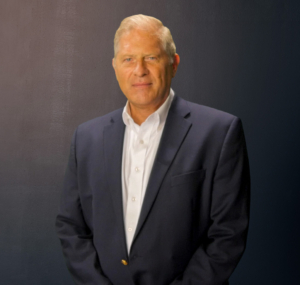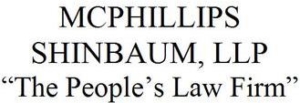David Sawyer
Partner
 David Sawyer joined the law firm of McPhillips Shinbaum in 2018. As a “people’s lawyer,” he represents many clients in matters involving the individual’s employment and civil rights. This includes many forms of employment discrimination; as well as clients who have been subjected to violations of constitutional rights, liberties and freedoms. This includes the freedom of speech, due process, wrongful arrest, excessive force, and wrongful death.
David Sawyer joined the law firm of McPhillips Shinbaum in 2018. As a “people’s lawyer,” he represents many clients in matters involving the individual’s employment and civil rights. This includes many forms of employment discrimination; as well as clients who have been subjected to violations of constitutional rights, liberties and freedoms. This includes the freedom of speech, due process, wrongful arrest, excessive force, and wrongful death.
In addition to practicing law in Alabama’s State and Federal Courts for many years, David Sawyer has also practiced in Alabama as a solo practitioner, served as the Deputy Circuit Clerk in Jefferson County from 2013-2018, as counsel for Alabama’s Administrative Office of Courts from 2003-2013, and as a law clerk to Hon. Alva Hugh Maddox of the Alabama Supreme Court from 1990- 1991.
Admissions
- Alabama, 1991
- Alabama Supreme Court
- U.S. District Court, Middle Northern & Southern Districts of Alabama
- 11th Circuit Court of Appeals
- U.S. Supreme Court
Education
- Cumberland School of Law, Juris Doctor, Birmingham, Alabama, 1990
- Princeton University, B.A. History/American Studies, Princeton, New Jersey, 1987
Justice also requires us to remember: “Faith, Hope, and Love – but the greatest of these is Love.”
Q&A
What inspired you to pursue a career in law?
As a preacher’s kid, I always had a goal of getting into a career where I could help people and improve our community. The law provided me with a powerful avenue to do just that. It allows me to make a tangible difference in people’s lives, much like my father did through his ministry.
What sets you apart in your area of legal expertise?
I believe it’s my in-depth knowledge of constitutional civil rights that are provided for everyone’s protection, coupled with my expertise in employment law and what should allow someone to keep their job. This combination allows me to tackle complex cases that often intersect between these two critical areas of the law.
Could you describe the journey that brought you where you are today?
My time at Princeton was truly formative. I learned a great deal there, and I’ve been able to apply that knowledge directly to my legal career. It’s about taking what I learned in academia and using it to make a real-world impact through law. That transition from theory to practice has been the cornerstone of my journey.
What do you consider your most significant achievement?
One case that stands out was when I represented three city police officers who had been put on leave without pay, which they weren’t allowed to do under the law without telling them why. It was a challenging situation – the case lasted 6 years, but we managed to receive a very favorable jury verdict on all of our claims. That case really showed me the impact our work can have on people’s lives and careers.
Can you share a case or client experience that had a profound impact on you and/or your career?
That same case with the police officers I just mentioned – it wasn’t just significant in terms of the outcome, but in what it taught me. It really developed my patience and showed me how to more effectively manage clients through a difficult process. These aren’t just legal issues we’re dealing with – they’re people’s lives, and that case drove that point home for me.
If you weren’t an attorney, what alternative career path might you have pursued?
I’ve always felt a calling to serve others, so I think I would have been drawn to a career affiliated with the church, or perhaps as a teacher at the high school or college level. I also have a passion for coaching, so that might have been another path I’d have explored.
What advice would you give to aspiring attorneys who are going through law school right now?
Find something that makes you happy every day. The legal profession can be demanding, but if you’re passionate about what you do, it makes all the difference. Focus on areas of law that genuinely interest you and align with your values.
What’s one thing about the legal profession that might surprise people?
I think many people would be surprised by the amount of discretion a judge has in deciding how the case will proceed or even whether a case goes to trial. And even if you win a trial, the other party can appeal, and it could take years to resolve.
Outside of practicing law, what hobbies or activities do you enjoy in your free time?
I’m an avid reader, which helps me unwind and stay intellectually stimulated. I also enjoy watching football – it’s a great way to relax and connect with friends and family. And when I want to stay active, I go rowing. It’s a wonderful full-body workout and allows me to enjoy the outdoors. You can exercise and think at the same time.
What source of inspiration or motivation has been the most significant driving force in your professional career and in your personal life?
Without a doubt, my father has always been a great inspiration. His life of service has been a constant motivator for me, both personally and professionally. The way he lived his life, dedicated to helping others, has shaped my approach to law and my broader life philosophy. And also Julian McPhillips. I’ve known Julian since high school, and he gave me the inspiration to work hard and not lose sight of the goal which is to help people. We’ve always tried to help anybody who walks in our door.
Do you have a favorite quote?
There are two that really resonate with me. The first is from Corinthians: ‘Faith, Hope, and Love – but the greatest of these is Love.’ The other is what everybody talks about but is really hard to live out in your life – ‘Love the Lord your God with all of your heart and soul and strength and love your neighbor as yourself.’ These principles guide both my personal life and my legal practice.








